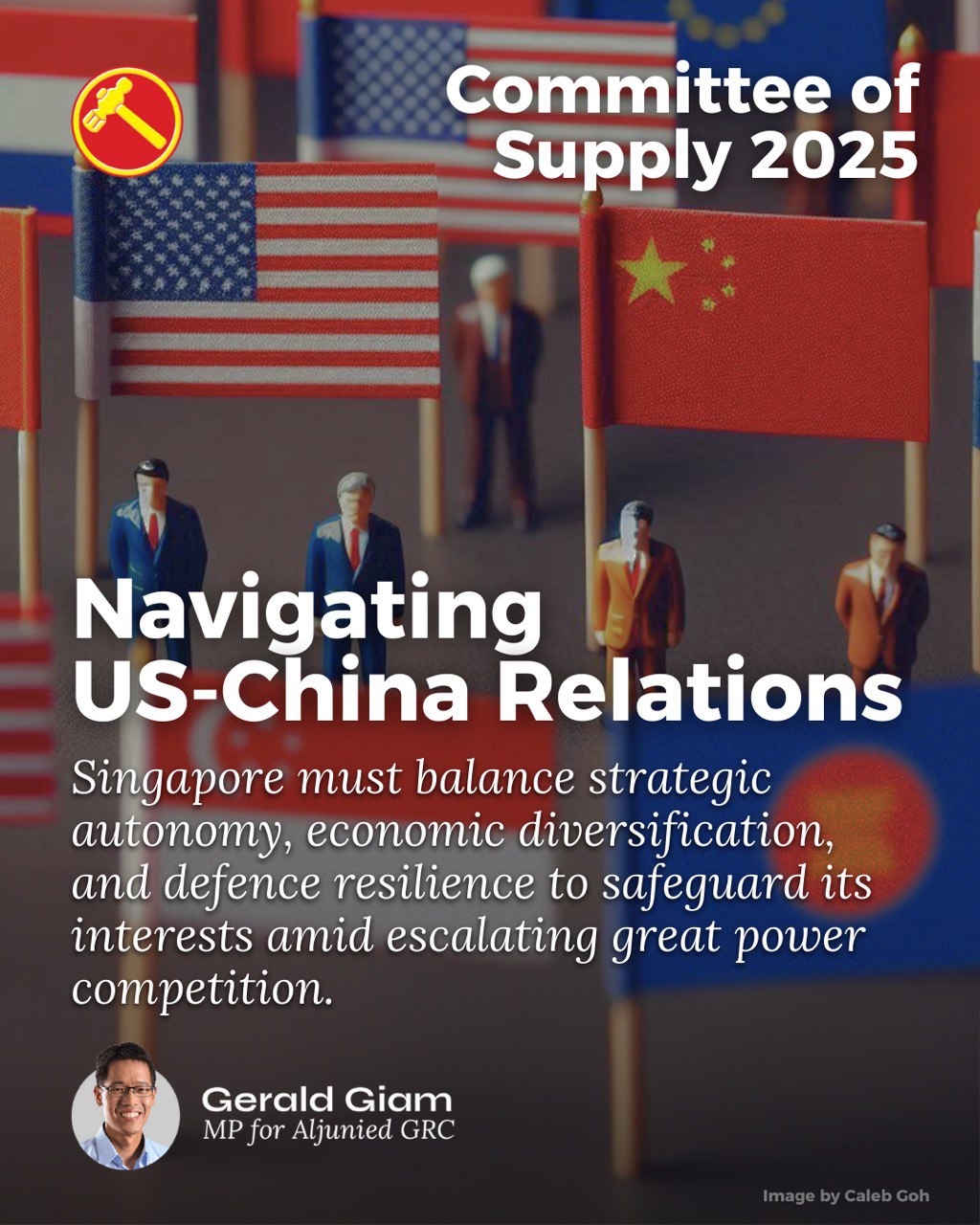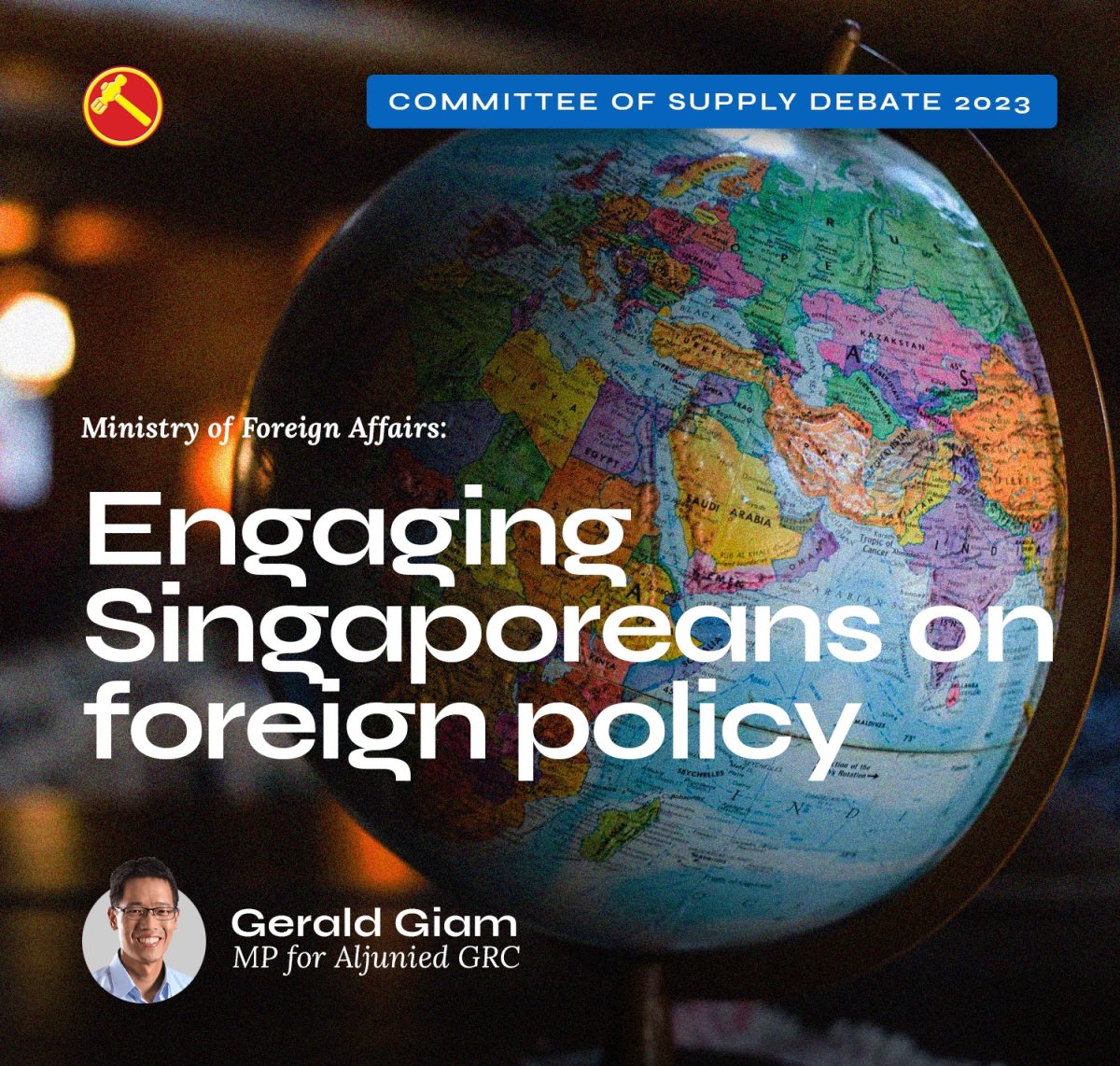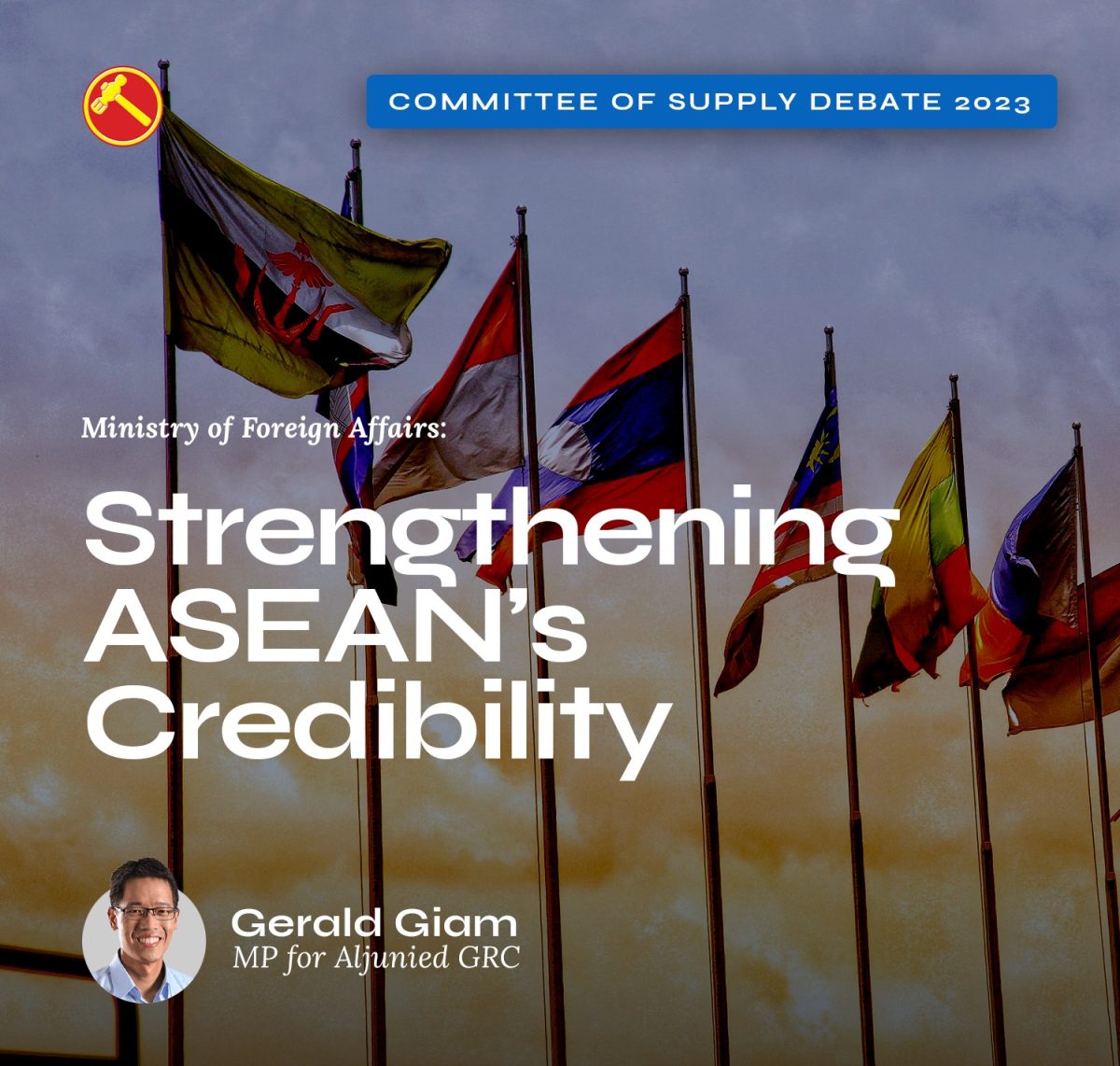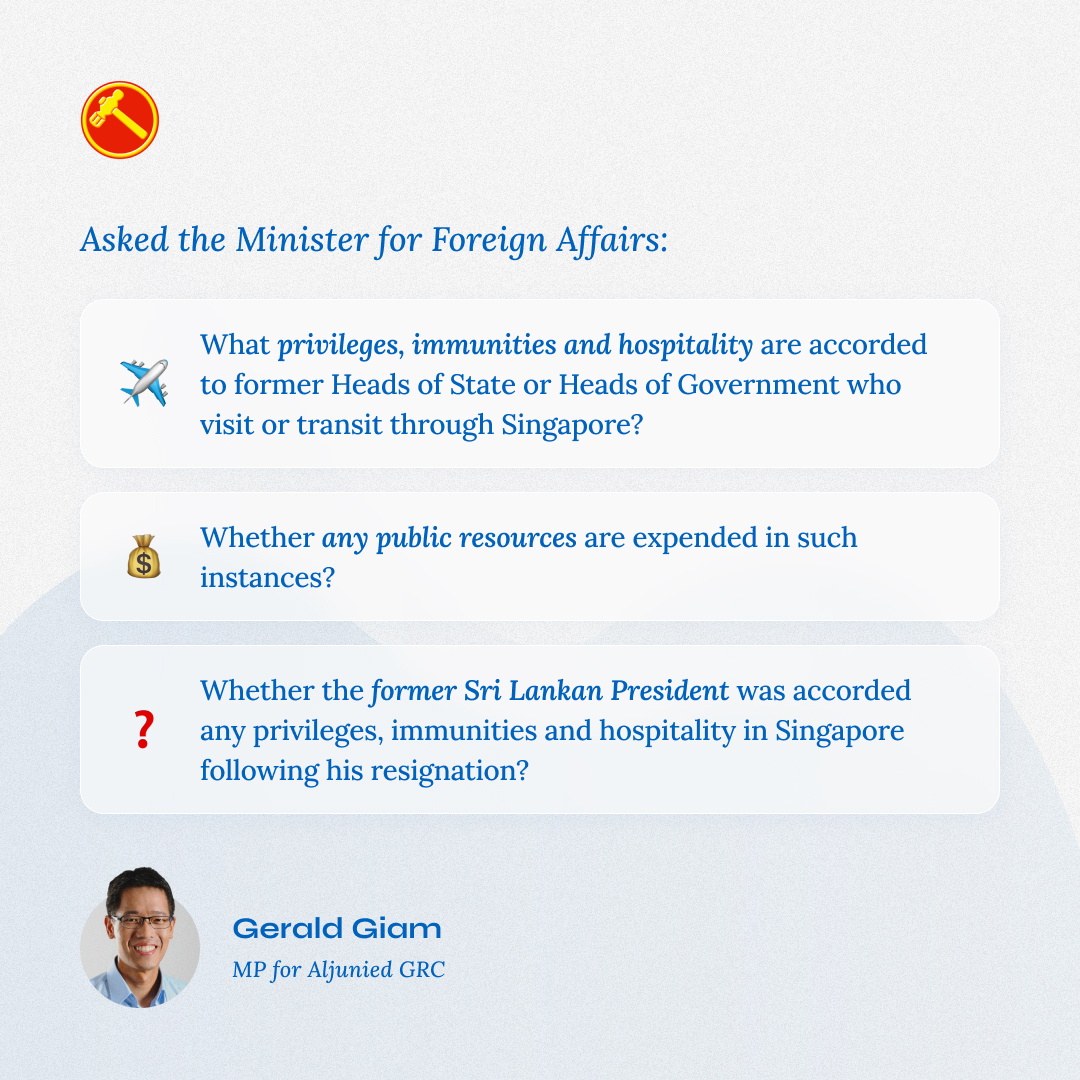Committee of Supply Debate, Ministry of Foreign Affairs
3 Mar 2025
Singapore’s most pressing foreign policy challenge today is managing the escalating rivalry between the United States and China. As a small state with an open economy, Singapore is highly vulnerable to disruptions from this great power competition.
Balancing strong military and economic ties with the US, with deep economic links with China requires careful diplomacy, strategic autonomy and economic adaptability.
To mitigate these risks, Singapore should diversify its economy by strengthening trade and investment ties with ASEAN and the EU, as well as with India, Japan, South Korea and other growing economies, ensuring these relationships are based on stable and predictable legal and institutional frameworks.
Changes in US engagement in Asia and rising military tensions with China create new security challenges for Singapore. To strengthen its defence resilience, Singapore should strengthen its defence partnership with the US while expanding security cooperation with more countries, including with our some of neighbours in Southeast Asia. At the same time, Singapore must continue building up the capability and competence of the SAF to ensure it remains a credible deterrent against emerging threats.
Building diplomatic goodwill through bilateral engagement and assistance will also be important in winning international support for Singapore in times of crisis.
MFA should expand efforts to educate businesses, NGOs and the public about our strategic interests through town halls and closed door briefings. It could also make better use of social media, podcasts and short videos to ensure foreign policy messaging reaches wider domestic and international audiences.
Could the Minister outline what MFA is doing in these areas and how it plans to strengthen such efforts?



